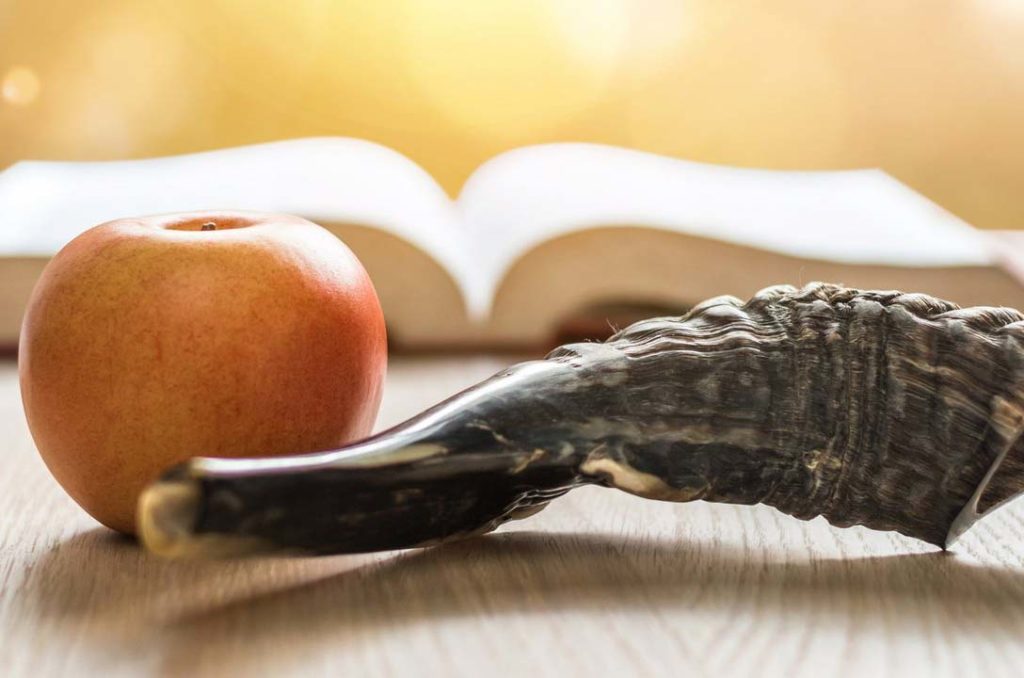A Student-Led Honoring of the Jewish High Holy Days
In seeking to develop boys’ spiritual growth and exploration, Roxbury Latin celebrates annually significant moments in the calendars of various faith traditions represented in our community. As Headmaster Brennan began in virtual Hall on September 24, “I believe that each of us, regardless of our age, gender, race, or place of origin, are forever questing to answer fundamental questions about our existence: Why am I here? Where did I come from? Where will I go? What is life’s purpose? What do I believe? What do I stand for?” On a Thursday in September, which fell between the celebrations of Rosh Hashanah and Yom Kippur, two students—Daniel Berk (I) and Heshie Liebowitz (II)—presented on what the celebrations of the Jewish High Holy Days mean to them.
Heshie brought students and faculty through an intellectual exploration of Rosh Hashanah, which began by his searching for specific references in the Torah. He wondered, in particular, why Rosh Hashanah—the celebration of the New Year—took place so late in the calendar. He learned, and shared, that Rosh Hashanah represents the head of the agricultural calendar: “In the land of Israel, the agricultural calendar is aligned with the beginning of the rainy season, which begins in the fall… In Deuteronomy, Moses explains that the rain [which farmers need for their crops] is dependent on God’s judgment of the behavior of the children of Israel.
“For me, the Jewish New Year signifies an annual ‘self-check’: Rosh Hashanah reminds us to evaluate how well we’re doing in walking the ways of God. This year, my deeper understanding of the agricultural underpinnings of the holiday allows me to see the connection between this personal self-check and the success of the people as a whole.”
Daniel shared his thoughts on Yom Kippur, which is considered the most holy day in the Jewish tradition. “Yom Kippur,” he began, “does not commemorate any specific historical event. Rather, Yom Kippur is a deeply personal holiday, focusing on the worshipers themselves. It is a time when Jews confess to and apologize for their transgressions. For me, it represents an ethical reset, a time to rid oneself of moral baggage and prepare for the upcoming year with a clean slate.
“At the beginning of the High Holy Days, the mood is festive because Rosh Hashanah commemorates a new year and a new beginning. Yom Kippur brings its own unique, elevated mood to the community… though there is a reserved, solemn manner about the celebration, a tacit gravity understood and observed by all. The High Holy Days are reflective and personal times for everyone… when we are called to recognize the mistakes we made, promises we’ve broken, and transgressions we’ve committed. It is not a celebration, but rather a day of confession and growth.”
Daniel recited the Vidui, a Yom Kippur prayer that serves as a confession of a wide range of transgressions, covering a literal A to Z of sins—from abuse, betrayal and cruelty to zealotry. “For me, the confession represents all the ways that I myself have not been a perfect person. It accounts for the fact that I’ve not been able to follow all the commandments. And it serves as a statement of my humanity.”
Heshie agreed: “As Daniel talked about, among those commandments are some very practical, important guidelines for everyday life, such as ways of treating people, and how what you do affects your whole community and everyone around you.”
At the close of the Hall, Mr. Brennan reminded everyone that we “should never take for granted our freedom of religion,” nor our ability to express what we believe, since this freedom is not something available to people all around the world.

